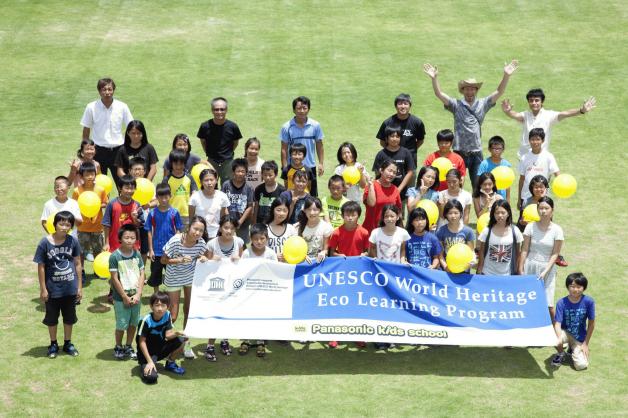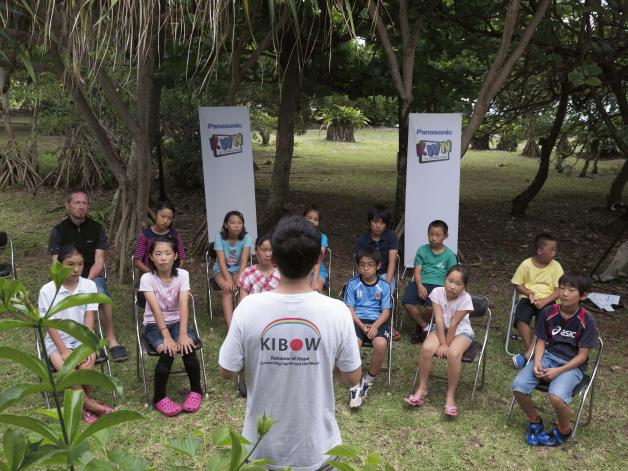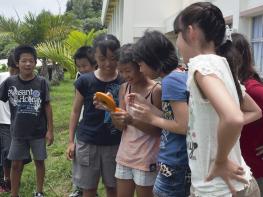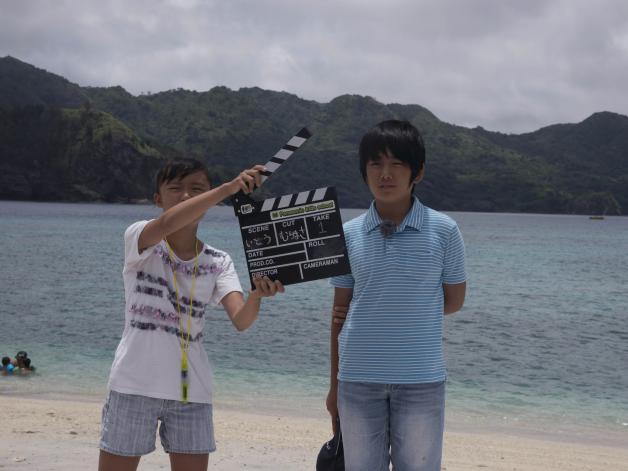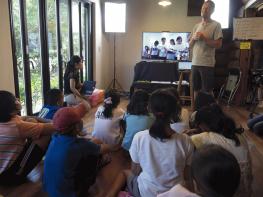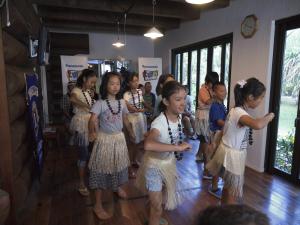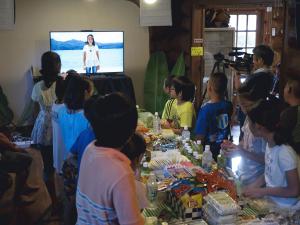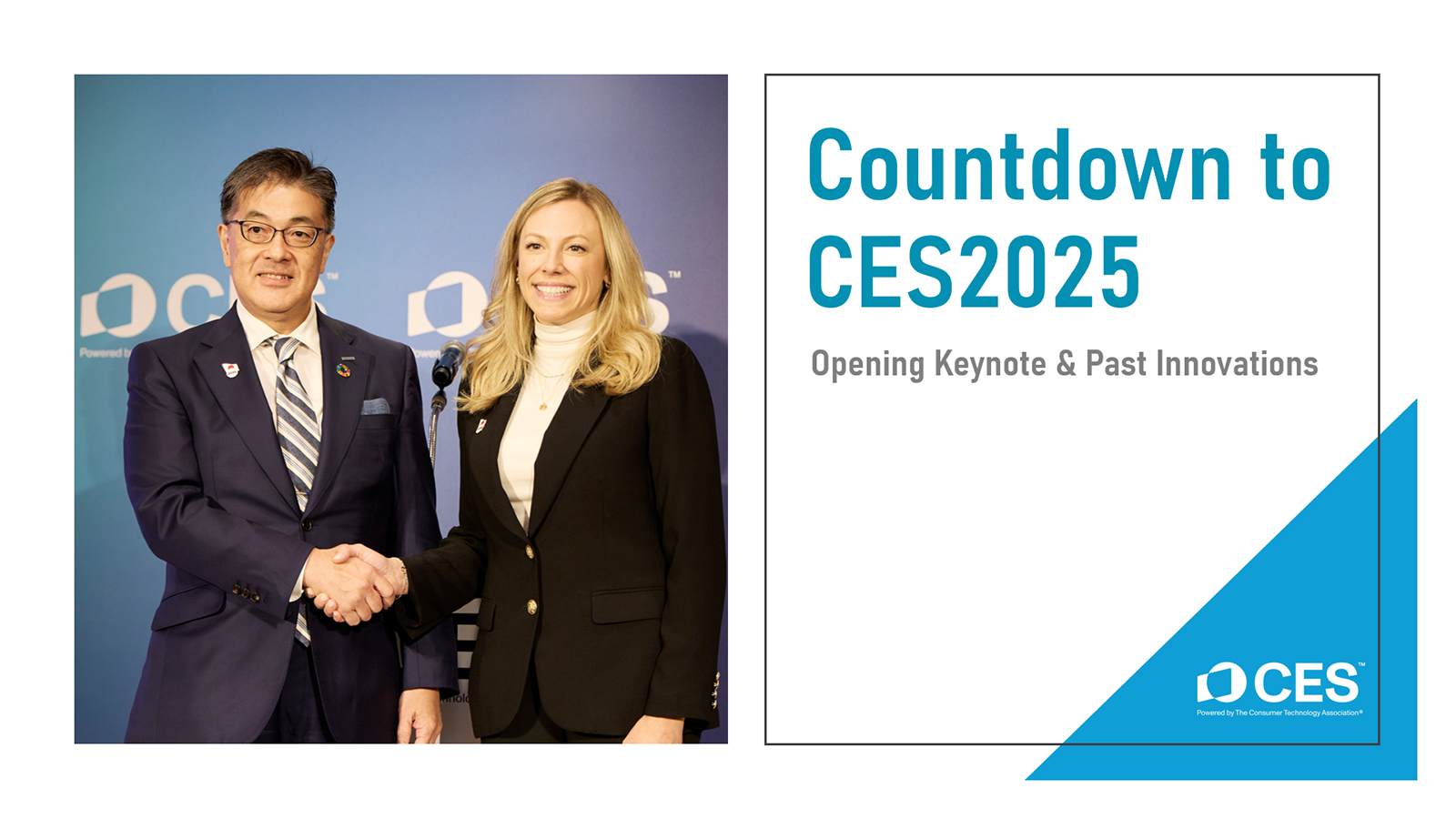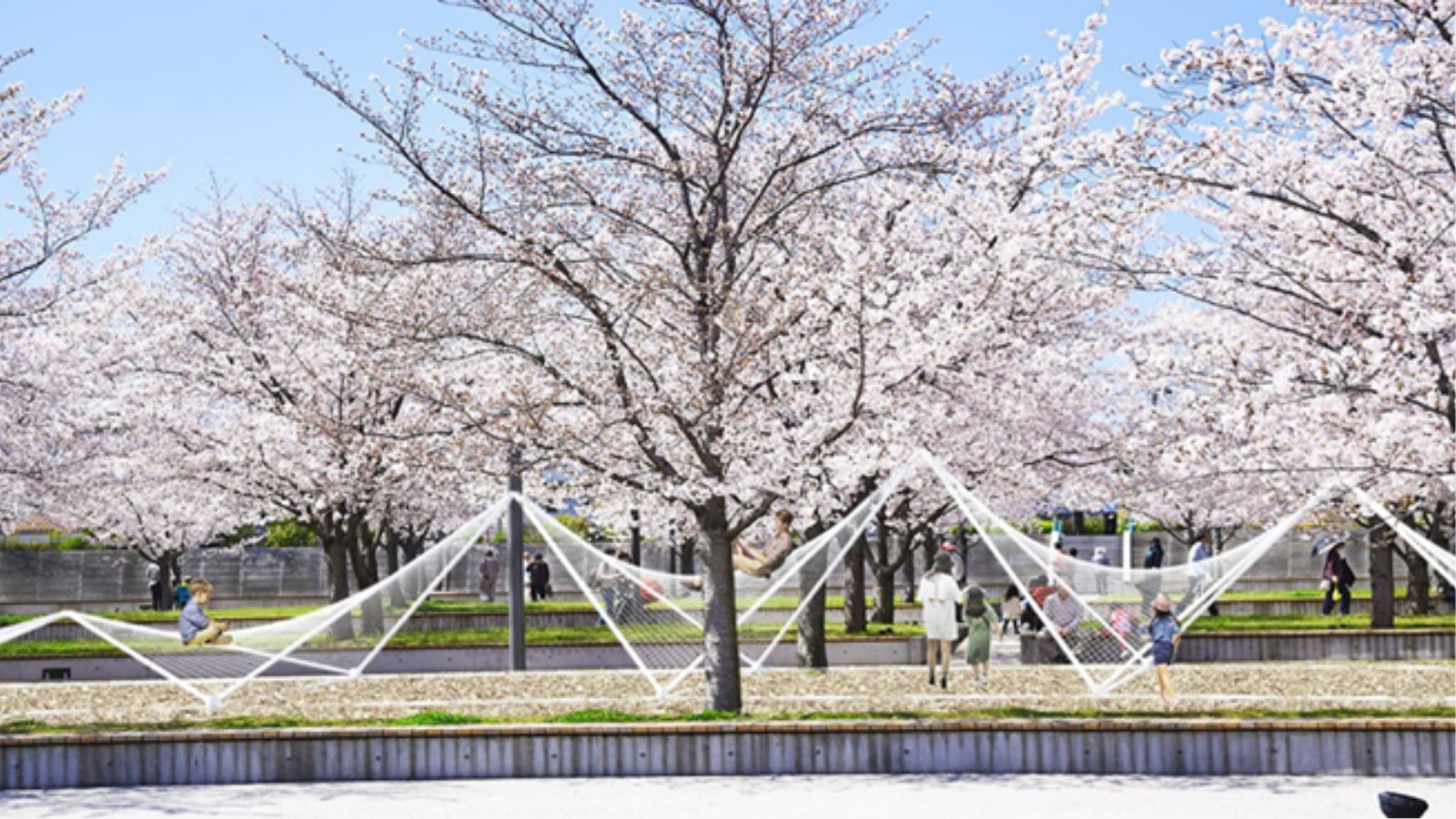- Exploring Wonders! The Ogasawara Islands Part 1
- Exploring Wonders! The Ogasawara Islands Part 2
Between June 26 (Thu) and 28 (Sat), 2014, Panasonic hosted an "Environmental activity for the next generation at the Ogasawara Islands - a UNESCO World Heritage Site" as a part of the Panasonic kids School World Heritage Eco Learning Program. A total of 55 children were participated. This time, it was implemented together with a Panasonic video production support program called "Kids Witness News (KWN)." A variety of events were held, including workshops to teach the KWN participants the basics of video production, and a Video Meet between them and a participating KWN school in Vietnam.
- Members participating in the World Heritage Eco Learning Program at the Ogasawara Islands.
Program Activities
- Students taking part in Kids Witness News (KWN), a video production support program.
June 26, 2014 (Thu):
A group of 12 children from the Ogasawara Lions Club and their teacher in charge, Mr. Ide, met with the Panasonic staff to discuss the details of the workshop and Video Meet.
- Students from Ogasawara Elementary School conduct fieldwork with "Boken-kun" educational digital video cameras.
June 27 (Fri):
A "World Heritage Eco Learning Program" was held for 43 students from the 5th and 6th grades of Ogasawara Elementary School. After learning about World Heritage Sites and discussing Ogasawara's rich nature, the students formed groups and conducted field work around the campus. With Panasonic's HC-BKK1 educational digital video cameras, nicknamed "Boken-kun," in hand, they set out to acquire video images under the themes of "Typical Ogasawara Scenery" and "Good Things about Ogasawara."
- A KWN workshop in action. Lights, camera, action!
- International cultural exchange through a Video Meet with students in Vietnam.
June 28 (Sat):
With 12 children from the Ogasawara Lions Club participating, a Kids Witness News (KWN) workshop was held in the early morning. Two groups of six students each took on the roles of camera operator, audio (mic and headphones) operator, lighting specialist, production control, and director, as they learned the basics of video production and the importance of teamwork. In the afternoon, they joined in a Video Meet with students from a participating KWN school in Vietnam, allowing them to exchange ideas and hold discussions through a video and audio link. Using the Skype function on VIERA TVs with Internet connections, the students had fun introducing their cultures through a quiz format and presenting a traditional form of tropical dance. In the evening, teachers and parents were invited to view a message video that the students had produced. Some of the parents were so touched by the video that they shed tears as they watched.
- Students presenting a traditional, tropical dance at the Video Meet.
- The students' message video is presented for viewing.
Partnership with UNESCO
Panasonic Corporation signed a strategic partnership contract with the UNESCO World Heritage Center on June 3, 2011, with the aim of helping conserve UNESCO World Heritage and promoting sustainable growth through environmental education for the next generation. As part of our related initiatives, we are promoting environmental education for the next generation at World Heritage Sites around the world, and have already conducted such activities at 13 different countries. By May 2015, we will conduct environmental activities for children at World Heritage Sites in at least 5 more countries.
Kids Witness News (KWN)
Created by Panasonic in the United States in 1989, Kids Witness News (KWN) has since grown into a global program for students in elementary and junior high school levels. The educational assistance program celebrates its 25th anniversary this year. Video production activities are used to enhance creativity and communication skills, while also cultivating teamwork. As of March 2014, there were 68 participating elementary and junior high schools in Japan, and 548 schools in 23 countries and regions worldwide, with more than 10,000 students taking part each year.
Related Links:



